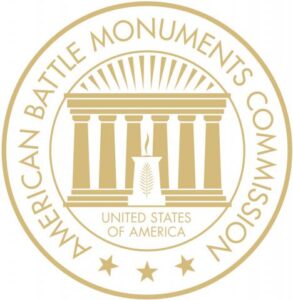The American Battle Monuments Commission’s (ABMC) Flanders Field American Cemetery is located in Waregem, Belgium. It is the smallest ABMC cemetery in the world and the only World War I cemetery in Belgium. How well do you know this site? Here are five things you may not know about Flanders Field American Cemetery.
The first Memorial Day flyover
The tradition of the flyover during the Memorial Day ceremonies started in the late 1920s. The very first Memorial Day ceremony flyover at any ABMC cemetery was in 1927 over Flanders Field American Cemetery. The Spirit of St. Louis, piloted by Charles Lindbergh, flew over the cemetery only nine days after its historic crossing of the Atlantic Ocean.
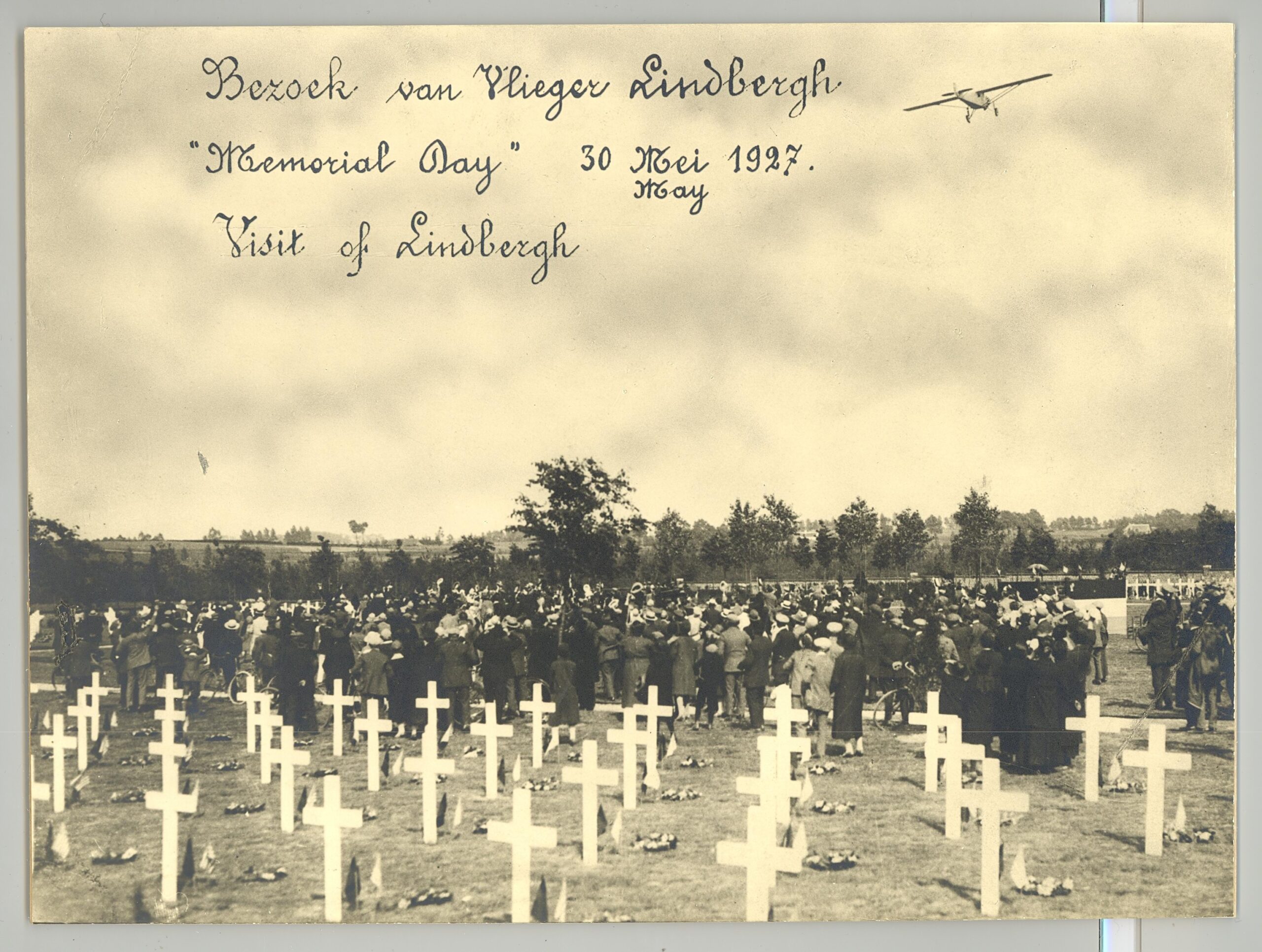
Completion of the chapel
The chapel of Flanders Field American Cemetery, a very representative element of the site, was completed in 1930 just before the first group of Gold Star Mothers visited the cemetery to honor their loved ones. The Gold Star Mothers’ Pilgrimage was a U.S. government program that paid the travel expenses to the grave sites for mothers and widows whose sons and husbands had died overseas.
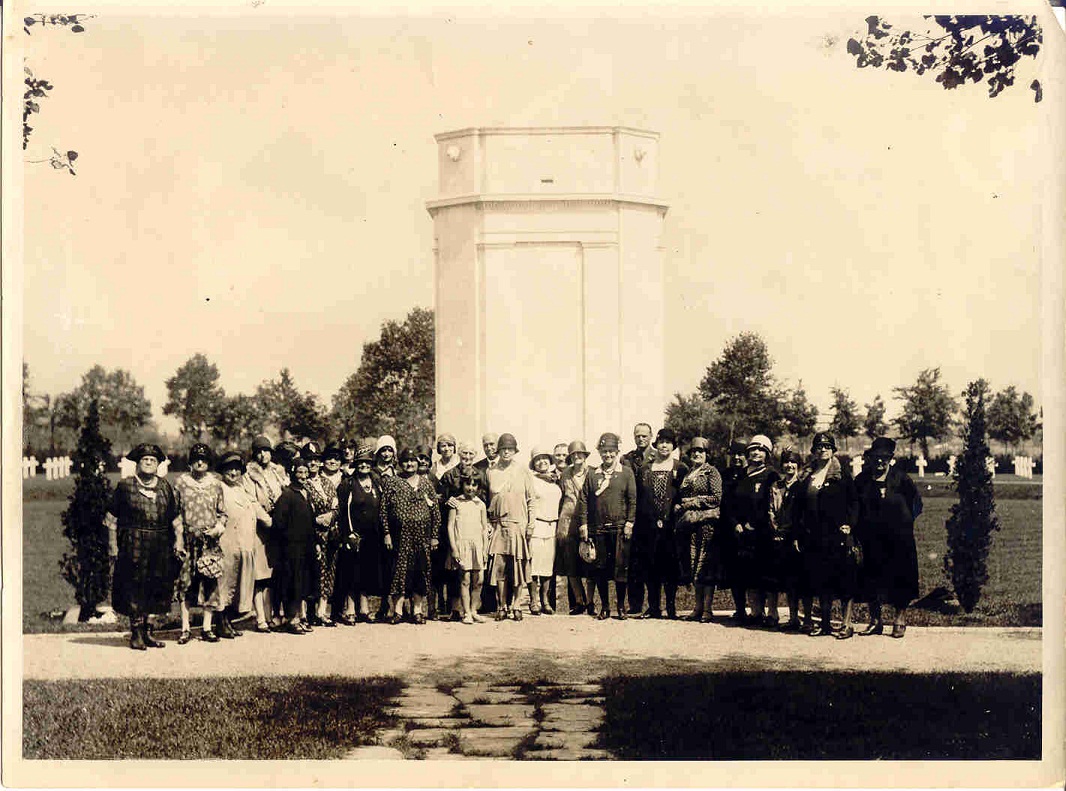
Protecting the site
During the Nazi occupation in World War II, Achile Adams, who was originally from Waregem, was present at Flanders Field American Cemetery and even prevented the German authorities from taking the massive bronze chapel doors for their war effort, preserving the site and its original design. On May 5, 1941, Gen. John J. Pershing ordered American employees at sites in France and Belgium to evacuate to Paris. On May 13, they were ordered to return to the U.S. with their families which include Flanders Field American Cemetery superintendent at that time, William Moses. For the remainder of the war the local staff cared for the cemetery.
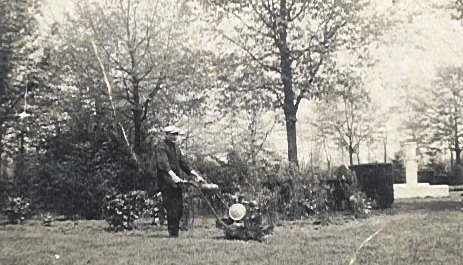
A tie to World War II
Even if Flanders Field American Cemetery is dedicated to World War I service members, U.S. military dead from World War II were temporarily interred there in front of Plot A. Their bodies were then either repatriated to the U.S. or buried in World War II U.S. military cemeteries abroad. Approximately 40% of families during World War II opted for their loved ones to be buried overseas, alongside their brothers-in-arms. The two sites dedicated to World War II in Belgium are Ardennes American Cemetery and Henri-Chapelle American Cemetery.
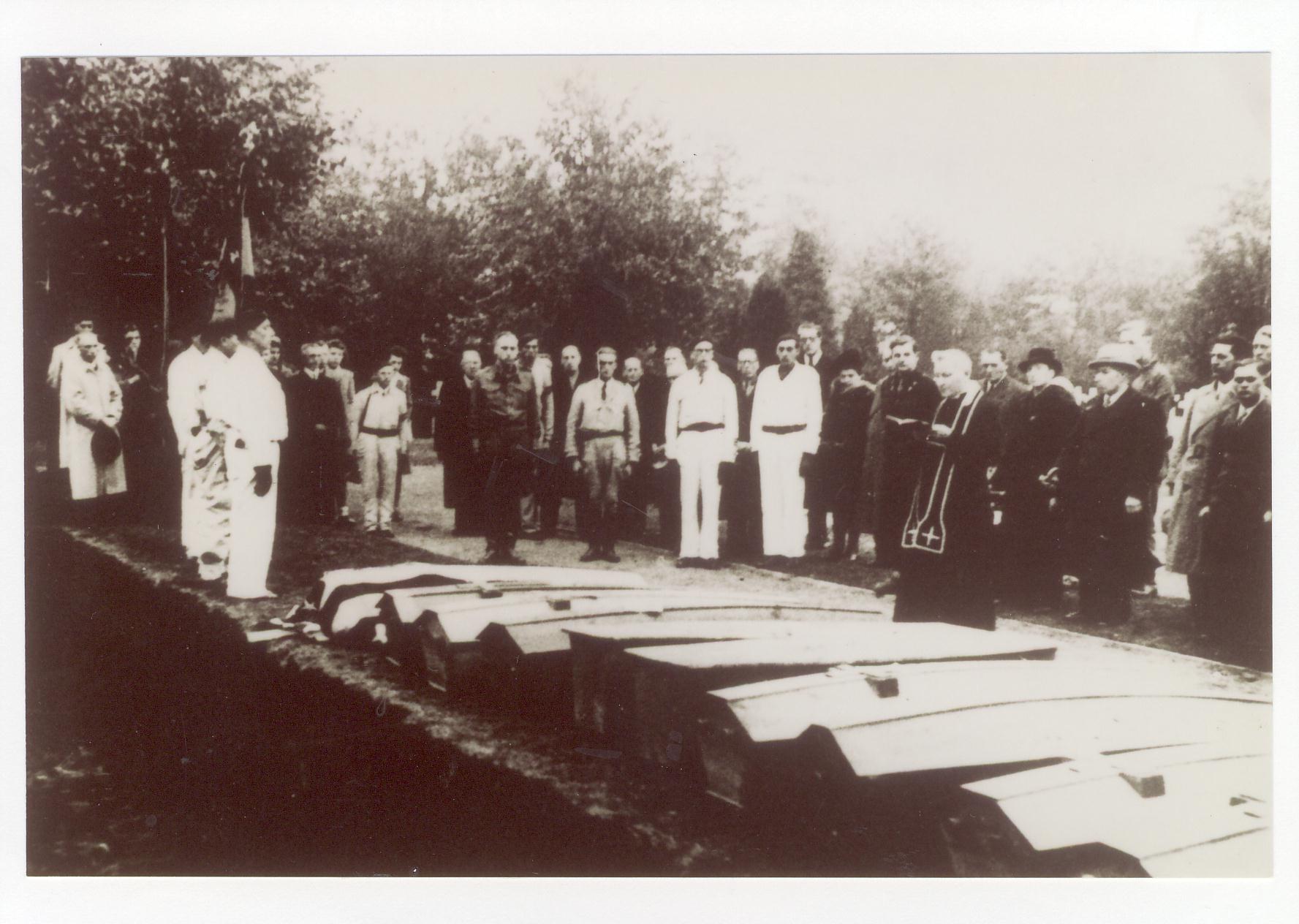
A single royal visit
When President Obama visited Flanders Field American Cemetery March 26, 2014, he was accompanied by his Majesty the King of Belgium and the Belgian Prime Minister, Elio Di Rupo. It was a very special time as it is the first and only monarch visit at any ABMC cemetery in Belgium.
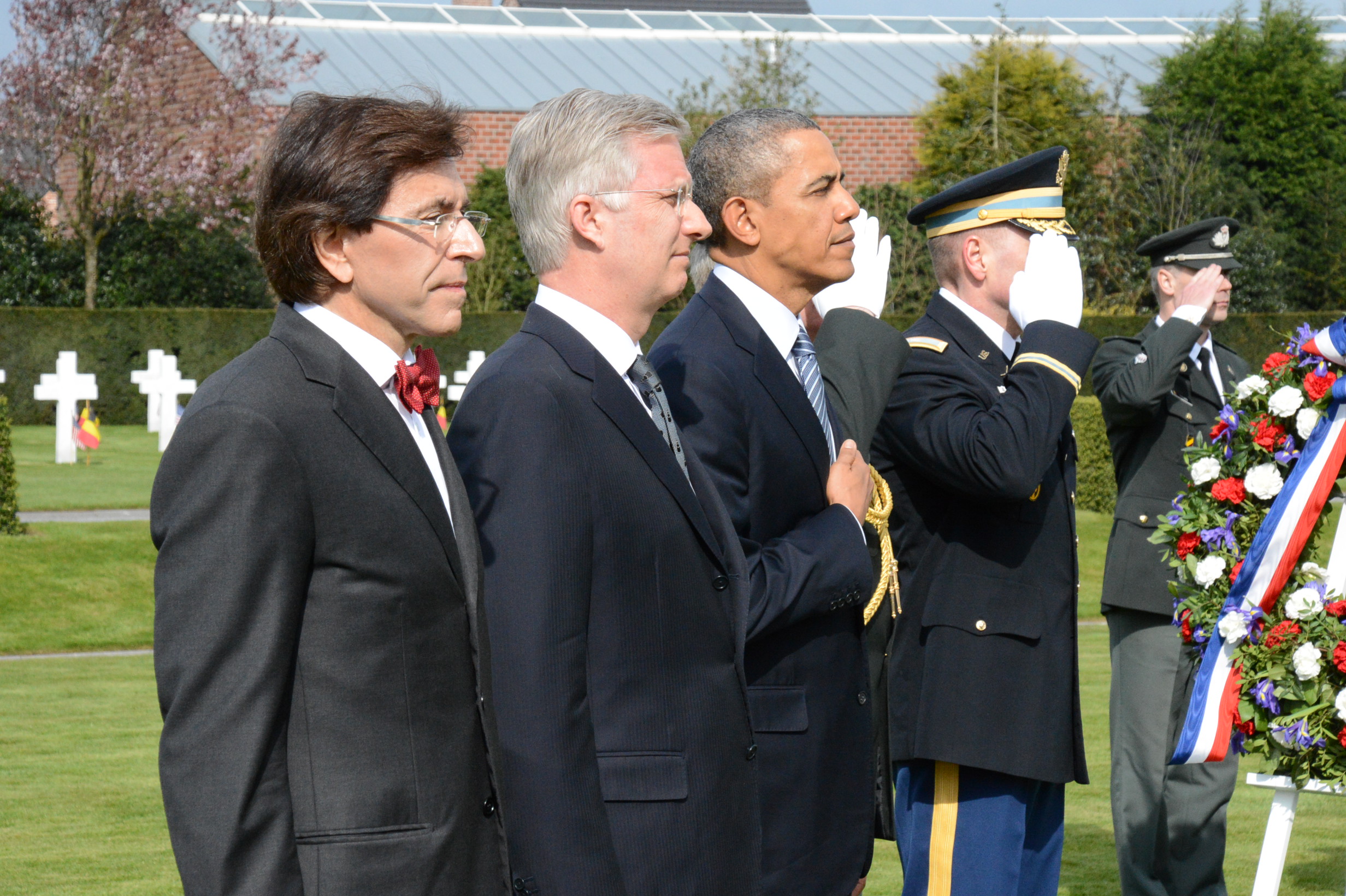
The ABMC’s mission is to honor the service of the Armed Forces by creating and maintaining memorial sites, offering commemorative services, and facilitating the education of their legacy to future generations. It was founded in 1923 following World War I and its 26 cemeteries and 31 monuments honor the service men and women who fought and perished during World War I (WWI), World War II (WWII), the Korean War and the Vietnam War, as well as some who fought during the Mexican-American War.
Those sites are a constant reminder of Gen. John J. Pershing’s promise that “time will not dim the glory of their deeds.”
Sources:
Flanders Field American Cemetery team
Historical Services
 An official website of the United States government. Here's how you know.
An official website of the United States government. Here's how you know. 